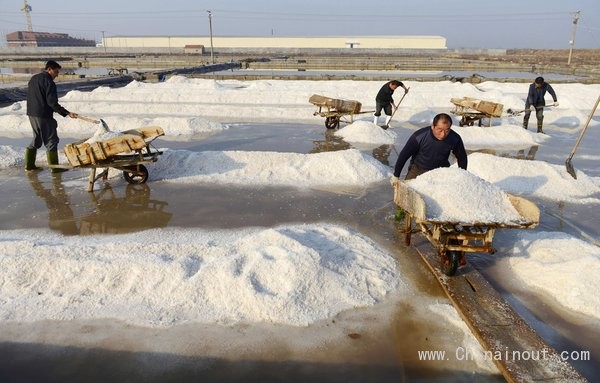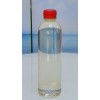中国计划取消盐业专营,这标志着一个已有近2700年历史的制度的终结。《北京青年报》援引工业和信息技术部的话称,此举是为了促进竞争。
中国的经济规划者数年来一直试图取消盐业专营制度,但遭到控制盐类分销的国有企业中国盐业公司及担心物价及食品安全的消费者的反对。
学者傅罗文(Rowan K. Flad)在《古代中国的盐业生产和社会等级》(Salt Production and Social Hierarchy in AncientChina)一书中写道,早在公元前685年,山东半岛的齐国就开始对盐业生产进行垄断,但这种制度或许出现得更早。
在这种制度下,政府指定盐类生产商,禁止将盐运送至授权地区之外的地方。盐类贸易长期以来一直是政府的重要收入来源,在一定程度上带来收益,为中华帝国偏远前哨的士兵提供军饷。
随着中国实现工业化,盐业专营制度对总税收的贡献大幅减少,但仍然发挥重要作用。最近,也就是在1990年代中期,由于儿童食用的食物缺乏碘,中国出现了广泛的可预防的发育性残疾问题。1995年,中国下令生产加碘盐,以减轻这一问题,政府利用了盐业专营制度来实施该规定。
研究发现,自实施上述规定以来,缺碘水平大幅降低。
消费者长期以来一直反对终结盐业专营制度的举措。中国问题学者詹姆斯·赖利(James Reilly)在2011年出版的《强大的社会,聪明的国家》(Strong Society, Smart State)一书中写道,相关机构在2009年提议取消专营制度,但网络调查显示,大多数参与调查的人希望政府继续控制,中央政府最终放弃这一提案。《外交政策》(Foreign Policy)杂志指出,随着一些网络评论引起人们对有毒工业用盐与食盐混杂在一起的现象的关注,这种担心再次出现。
一些学者曾辩称,国家垄断制度实际上在一定程度上造成了食盐遭到污染的现象,在改革制度的同时实施食品质量法律应该有助于提高安全性。在2010年的一篇论文中,武汉大学的孙晋、范舟、秦丽指出,食盐专营意味着,市场上的盐价比中国盐业公司从授权生产商手中收购的价格高出两到三倍。
这些作者写道,虽然由于食盐在平时的杂货开销中所占比例较小,普通消费者没有感觉到价格差别,但这种利润支撑着一个规模庞大的、有害的地下市场。他们指出,这种食盐通常不含碘,可能含有有害杂质。(中国进出口网)
China plans to scrap its state monopoly on the sale of salt, marking the end of a system withnearly 2,700 years of history. The move is intended to bolster competition, the Beijing YouthDaily reported, citing the Ministry of Industry and Information Technology.
China’s economic planners have tried for years to eliminate the monopoly, but facedopposition from the China National Salt Industry Corporation, the state-owned agency thatcontrols salt distribution, and from consumers concerned about prices and food safety.

A monopoly on salt production was introduced as early as 685 B.C. in the state of Qi on the Shandong Peninsula, though it may have existed even earlier than that, the scholar Rowan K. Flad writes in “Salt Production and Social Hierarchy in Ancient China.”
Under the system, the government designated who could produce salt, and the shipping of salt outside authorized districts was banned. The salt trade was long a significant source of revenue for the state, and helped provide revenue and pay for troops in far-flung outposts of the Chinese empire.
As China has industrialized, the contribution of the salt monopoly to overall tax revenues has greatly diminished, but it has still served important functions. As recently as the mid-1990s, China experienced widespread problems of preventable developmental disabilities because of a lack of iodine in children’s food supply. In 1995, the country mandated that edible salt be iodized to reduce the problem, and the salt monopoly was used to enforce that rule.
Studies have found a significant reduction in levels of iodine deficiency since the requirement was put in place.
Consumers have long complained about efforts to end the salt monopoly. When a proposal was put forward to eliminate the system in 2009, the central government backed down in the face of online opinion surveys that showed a majority of respondents wanted the government controls to remain in place, the China scholar James Reilly wrote in his 2011 book “Strong Society, Smart State.” Those concerns have revived again, as online comments have raised concerns about the inclusion of toxic industrial salts being mixed with edible salt, the magazine Foreign Policy has noted.











